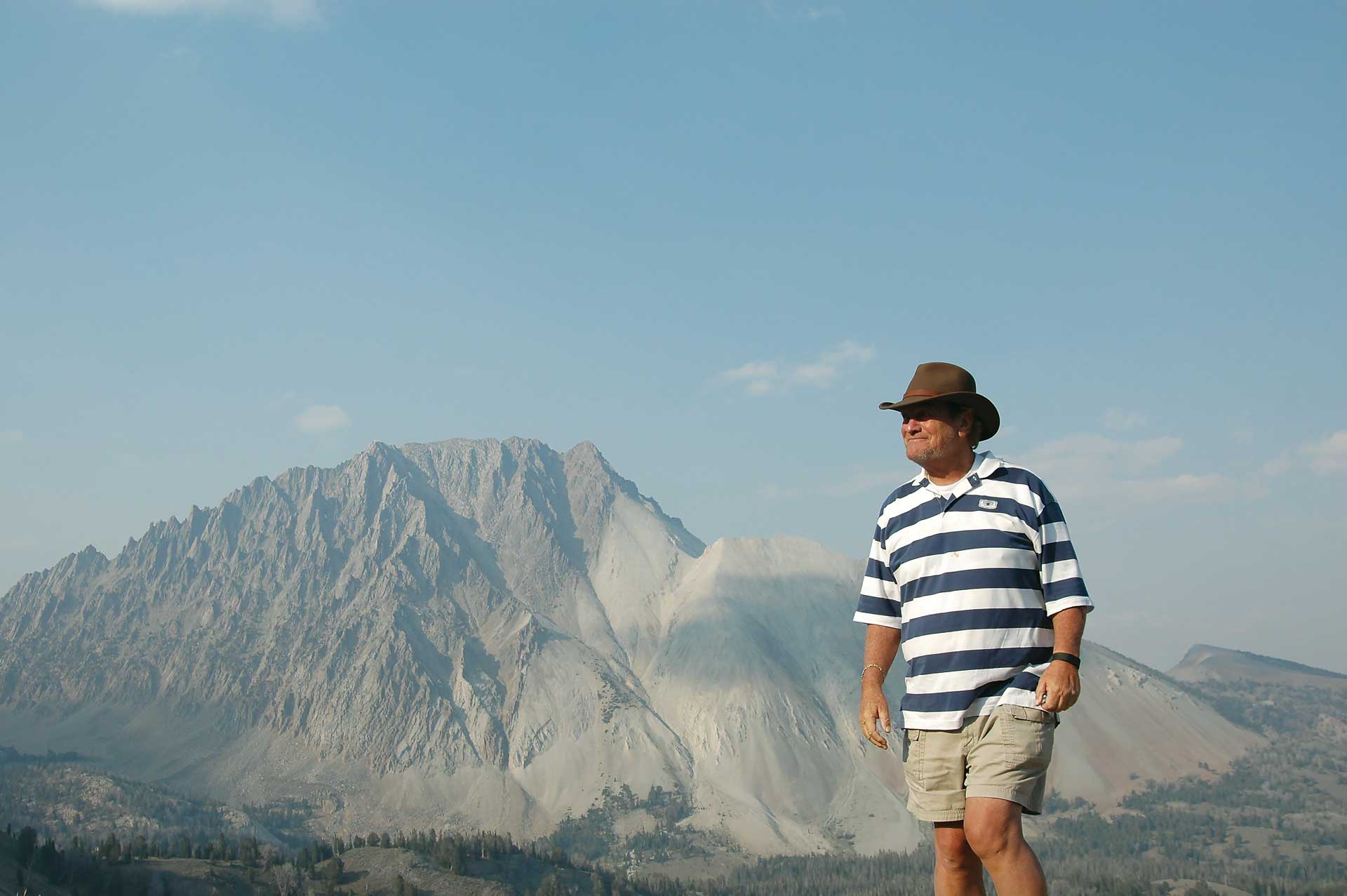
Idaho Rep. Mike Simpson champions removing four dams on the Lower Snake River to save salmon, not because he fishes for them, but because he says it’s the right thing to do.
Since Idaho Rep. Mike Simpson’s dad died about 20 years ago, he’s been meeting his mom and two uncles occasionally at restaurants around Idaho for lunch. He fills them in on the work he’s doing in D.C.; they offer their takes from back home.
In November, he told them he was about to make “all hell break loose.” He planned to propose removing four dams on the Lower Snake River to save Idaho salmon.
“That’s the stupidest idea I’ve ever heard,” said his uncle, a retired engineer at the Idaho National Laboratory.
“I said, ‘Well, I know that it’s challenging, but why do you say that?’ He said: ‘We need the energy.’”
Later in the conversation, the elder Simpsons laughed and reminisced about the time they saw what looked like big black rocks in a mountain stream then realized they were spawning salmon. The families spent all afternoon watching those salmon reach the end of their nearly 900-mile journey from the ocean.
After lunch, Simpson asked his uncle if he’d like to preserve those experiences for his grandkids and great grandkids.
His uncle looked at him, a tear in his eye, and said, “You know, I would,” and decided that day to support removing the dams to save threatened and endangered salmon.

“The problem is, I have to go out and talk to a million and a half people one on one,” Simpson said in mid-July from his Congressional office in Washington, D.C. “It means I have to get out in these gatherings and talk to people about it, and that is harder to do.”
The Snake River basin provides more than 50 percent of the coldwater habitat in the lower 48 for Pacific salmon and steelhead. But its rivers and streams are blocked by the lower four Snake River dams, and its fisheries are in rapid decline.
Help us by speaking up today! Tell Congress to take action to remove the lower four dams.
Removing dams to save salmon may sound like the biggest challenge of a politician’s life. But Simpson, a dyed-in-the-wool Republican, knows how to accomplish monumental feats for conservation. He helped pass the Great American Outdoors Act and crafted a bill to create Idaho’s Boulder-White Clouds Wilderness Area.
He knows how to find solutions to problems with nearly all parties feeling like they won. And he knows how to have those hard conversations, how to sit down in kitchens, in county commission offices, in cafés and with tribes and explain the difficult decisions facing people, salmon and the environment. He knows how to listen.
So at 70 years old, after more than 40 years in politics, Simpson is going to do what many people say can’t be done: Remove dams, make grain producers, water users and energy consumers whole and save Idaho’s salmon.
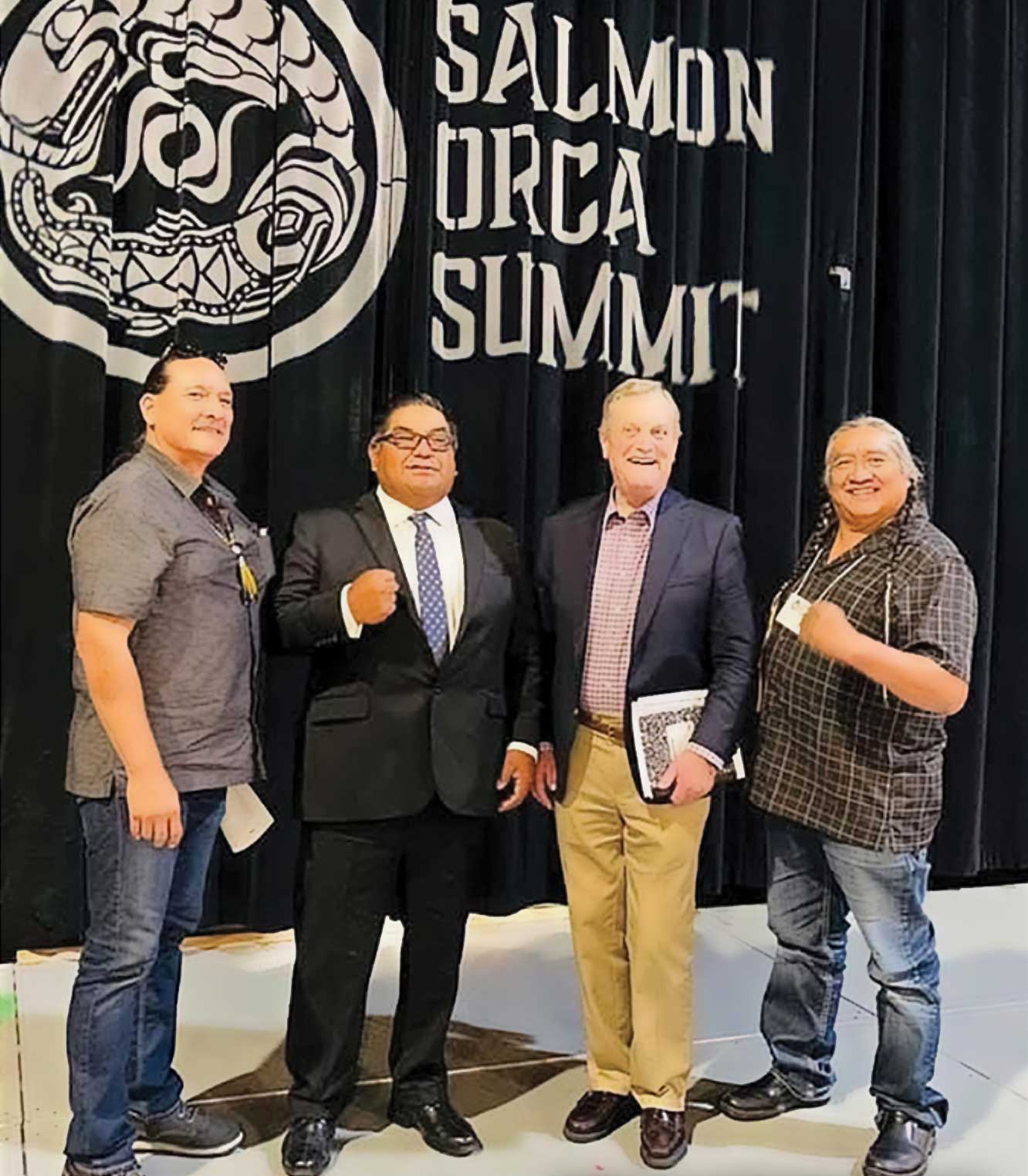
“I don’t do this for me. I don’t do this for you, or any of your readers, I do it for their children and great grandchildren.”
Tribal leaders with Rep. Mike Simpson (R-Idaho) at the Salmon Orca Summit.
Don’t ask Simpson for a touching story of a life spent outdoors or a eureka moment delicately releasing a shimmering chinook salmon.
He doesn’t fish.
Like most children of the West, he spent summers camping and playing outside. He remembers weekends at Red Fish Lake and in the Sawtooth Range. His dad and uncle hunted, and his brother was a passionate angler. In Simpson’s words: His brother liked to fish and he liked to eat fish.
One day, years ago, his brother regaled him with stories of trout biting in the Blackfoot River. He caught so many fish his arm was sore. So, Simpson went along, ready to catch fish until exhaustion.
“We spent four hours, and not a bite,” he said. “I came to the conclusion all fishermen are liars!”
He laughs when he tells this story. Saving salmon isn’t limited to those who like to cast to them.
“From my upbringing, I had a total respect for the environment we live in, and the fact that it can disappear if we aren’t careful,” he said. “I don’t do this for me. I don’t do this for you, or any of your readers, I do it for their children and great grandchildren.
“Things don’t change rapidly overnight. They happen in gradual stages, and before you know it, you turn around, and you destroyed one of the great places in Idaho.”
Simpson didn’t set out to be a conservationist—the League of Conservation Voters gives him a nine percent lifetime score voting on pro-environmental issues. But he’s quick to point out that “conserve” is in the word conservative. Plus, he likes to solve complicated problems.
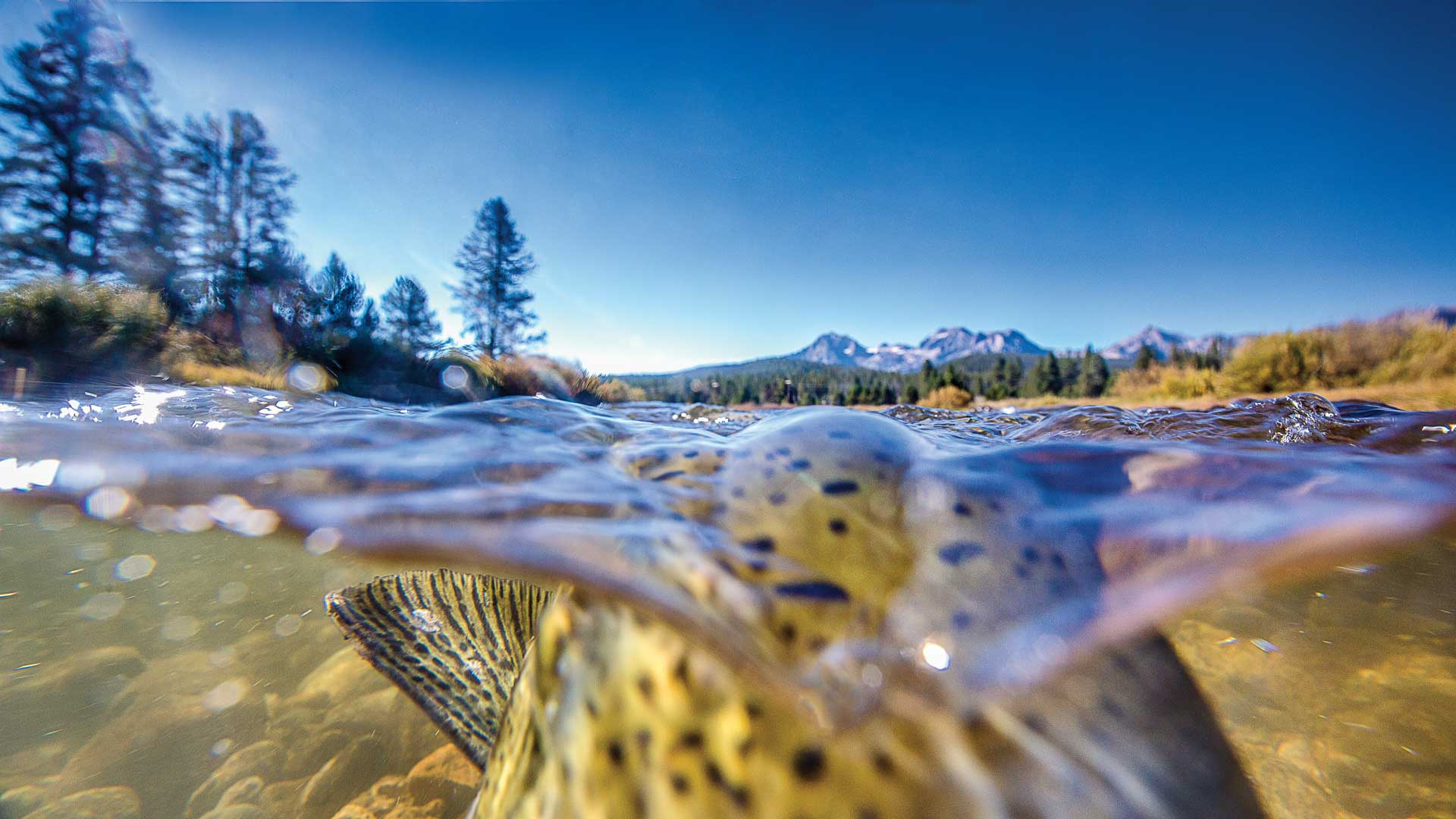
Simpson realized one of the biggest problems facing Idaho was a never-ending series of lawsuits and conflicts in a wilderness study area in central Idaho with some of the highest elevation spawning steelhead and salmon habitat in the world.
Everyone involved saw no possibility for resolution.
He saw a problem to solve.
He was born in Burley, Idaho, and raised in Blackfoot. He went to Utah State University intending to study political science, but then wasn’t sure what he would do with that degree. He had an interest in biology, and his dad and uncle were dentists, so he became one and joined their practice in Blackfoot.
Then one day, in 1980, he read a notice that the Blackfoot City Council had two open seats and only one person running. The chance to file closed soon, so he threw in his name. The next day so did four other people.
One seat would be filled by the incumbent, the other five, including Simpson, vied for the remaining seat. He won by eight votes.
“I got 1,016 and the other guy got 1,008,” he said. “If I had not won those eight votes, I don’t think I would have done anything else in politics. Public debate scared the heck out of me.”
But he did win. And four years later, he ran for an open seat in the Idaho State Legislature and won. There he stayed for 14 years, the last six as Speaker of the House. Ten to 12 weeks a year he spent in the Capitol, the rest at home practicing dentistry.
Then in 1998, the Idaho state representative seat opened. He asked his wife and high school sweetheart, Kathy, if they should risk their stable business and income for a chance to represent Idaho in D.C.
“She said, ‘I’ve watched you over the last several years, and in the three months when you’re busier than heck… you’re happier.’”
Why is he happier in the mess of politics? Because every day is different, and he likes navigating complicated challenges.
“If this was easy,” he said, “it would have already been done.”
As a newly minted Congressman, he realized one of the biggest problems facing Idaho was a never-ending series of lawsuits and conflicts in a wilderness study area in central Idaho with some of the highest elevation spawning steelhead and salmon habitat in the world. Everyone involved saw no possibility for resolution. He saw a problem to solve.
“And that became something he studied,” said Rick Johnson, former executive director of the Idaho Conservation League who worked with Simpson on the campaign. “He does that. He is not casual about his inquiry. He doesn’t want the three points from his staff, he wants the three books he should read. He wants the three scientists he should meet. He wants the three rivers he should visit. He wants to see it and touch it and smell it. I respect that.”
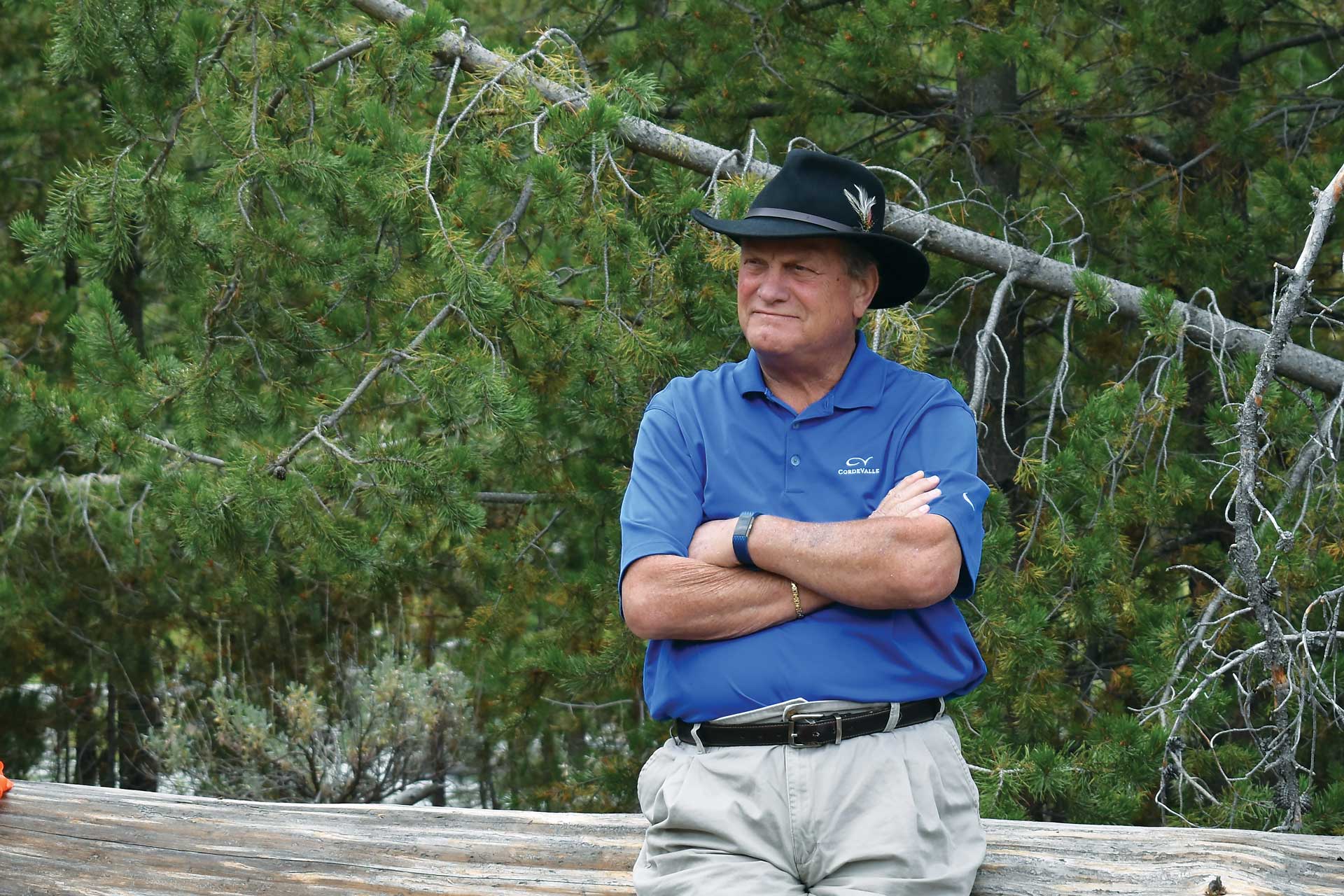
“It’s the last four Snake River dams that are causing the problem, particularly with Idaho salmon. They can make it over one or two or even three dams and have sustainable numbers, but eight dams are just too many.”
I am convinced if we can do this, in the long run, we will all be better off.”
No fewer than 15 years and 10 draft bills later, the Boulder-White Clouds Wilderness Area passed the House and then the Senate with unanimous support from Democrats and Republicans. Then-President Barack Obama signed the nation’s newest wilderness area into law.
Simpson often felt discouraged, but he also knew finding a solution to endless litigation and conserving one of the few remaining wild places was the right path. Even if it was the hard one.
Saving migrating salmon feels the same.
Simpson first heard someone propose removing the lower four dams on the Snake River about 25 years ago. He laughed at the idea.
“’We aren’t going to take those out,’ I said. ‘We need to do everything else before we even start talking about it.’ But the reality is, we’ve tried everything else.”
In fact, we’ve have spent $17 billion trying. No other option remains. Someone told him once that everything those dams do, we can do some other way.
Salmon can’t. “They need a river,” he said, “and right now, they don’t have it.”
“It’s the last four Snake River dams that are causing the problem, particularly with Idaho salmon,” Simpson said. “They can make it over one or two or even three dams and have sustainable numbers, but eight dams are just too many. I am convinced if we can do this, in the long run, we will all be better off.”
He won’t guarantee removing the dams will work. He even says as much in a video released in February to announce his proposal. But he does guarantee without it, those four runs of salmon that end their life journey in his congressional district will go extinct.
He doesn’t blame people for questioning the idea, but he does ask them to at least think about it, to understand the lack of options, and to be willing to consider what removing the dams could do for salmon and the tribes that depend on them.
If anyone has a chance of resolving what he calls the “salmon wars,” it’s Simpson, said former Idaho Rep. Bruce Newcomb, who followed Simpson as Speaker of the House.
“He looks at things that are really difficult, and he’s willing to invest the years and time it takes to accomplish what he thinks needs to be done, and along the way he builds consensus,” Newcomb said. “That is his forte.”
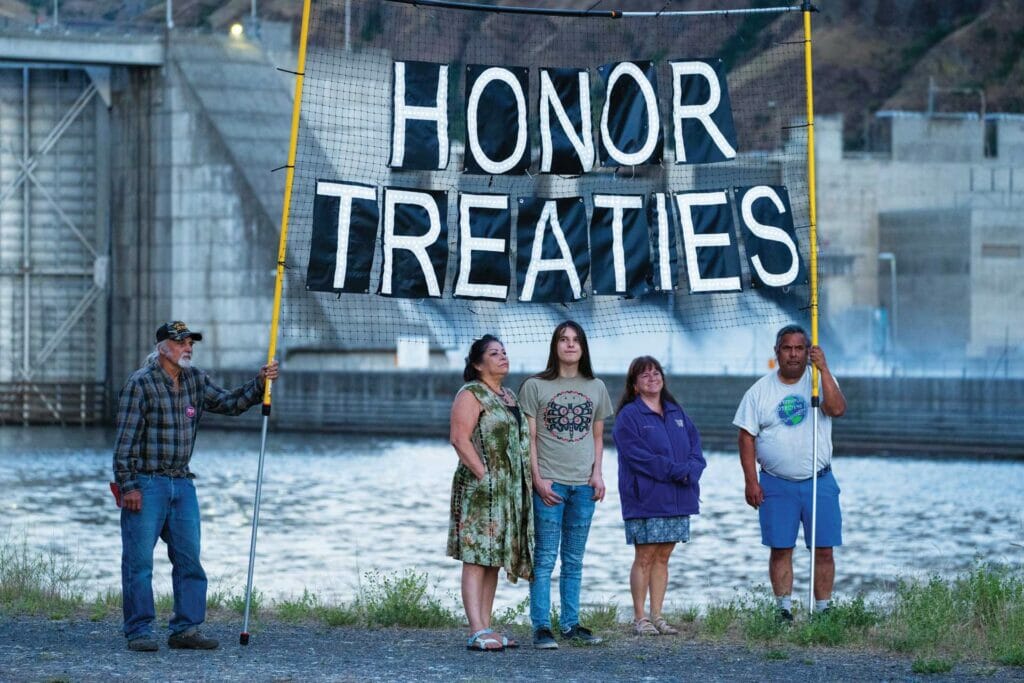
He has support from the Pacific Northwest’s tribes. The Affiliated Tribes of Northwest Indians—which represents 57 tribal nations—unanimously approved a resolution recently that the dams must go. Saving salmon might be the right move morally, but it’s also the right legal decision, Simpson said. Tribes have sovereign treaty rights to salmon. Causing salmon to go extinct breaks those treaties.
In the Nez Perce creation story, salmon offered themselves to humans for nourishment but said at some point humans would have to speak for the salmon. It’s not just a story, said Shannon Wheeler, vice chairman of the Nez Perce Executive Tribal Committee. Salmon have fed the Pacific Northwest landscape for millennia. Humans need to speak for them.
“There’s not a lot of time for no action here and the juncture and timing of things have a funny way of having the correct people in correct places to make things happen and move forward,” Wheeler said. “It is destiny to be brought forward at this time.”
Simpson not only has the position in Congress to bring consensus to breach the dams, he also has the ability to bring all sides together. In fact, Simpson and his team held more than 300 meetings about salmon before they released their proposal. Since February, they’ve had another 200 to 300.
“… and if I get beat in the next election, I will work on this as a private citizen,” he said. “I’ll be working on it until it’s done.”



Comments